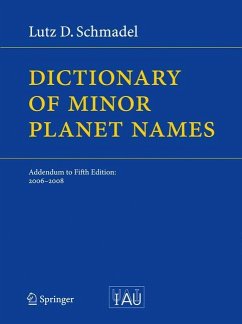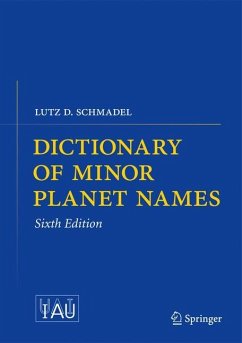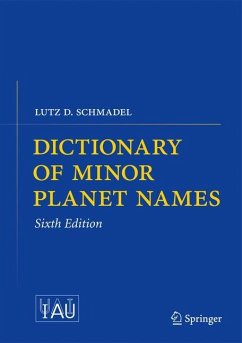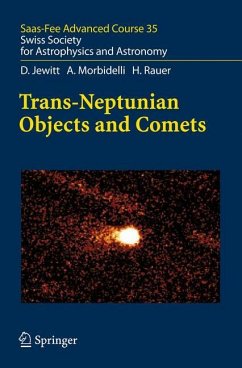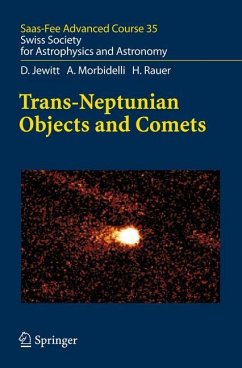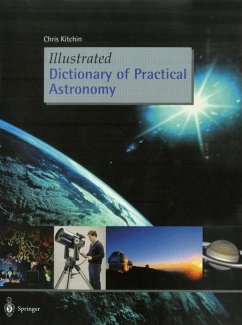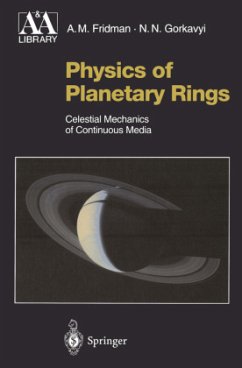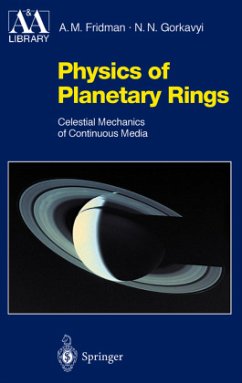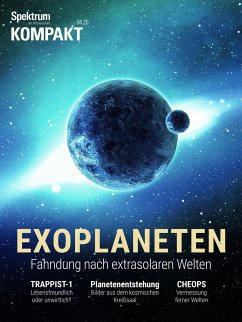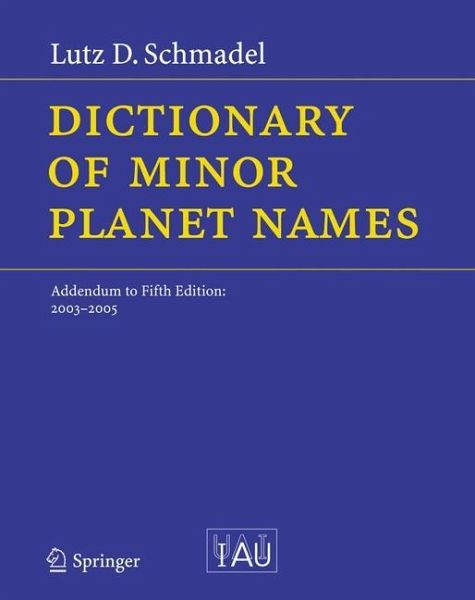
Dictionary of Minor Planet Names
Addendum to Fifth Edition: 2003 - 2005
Versandkostenfrei!
Versandfertig in 1-2 Wochen
77,99 €
inkl. MwSt.
Weitere Ausgaben:

PAYBACK Punkte
39 °P sammeln!
The Dictionary of Minor Planet Names, now in its fifth edition, is the official reference of the International Astronomical Union. This Addendum gathers some 2,000 newly published names from the period 2003-2005, as well as the latest corrections and amendments to earlier editions. In total, the Dictionary now covers some 12,000 named minor planets, providing authoritative information about the basis for the rich and colorful variety of names.
This Addendum to the Dictionary of Minor Planet Names, fifth edition, which is the official reference for the field of the IAU, contains all newly published names from the period 2003-2005 as well as corrections and amendments to earlier editions. In total the Dictionary of Minor Planet Names now covers some 12000 named minor planets. It provides authoritative information about the basis for the rich and colorful variety of ingenious names, from heavenly goddesses to more prosaic constructions.




